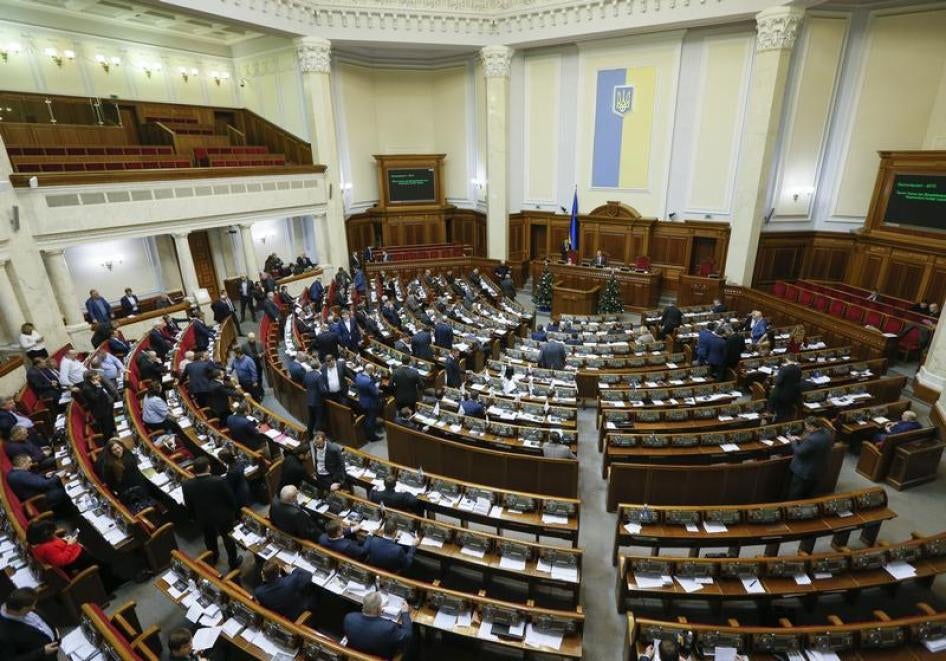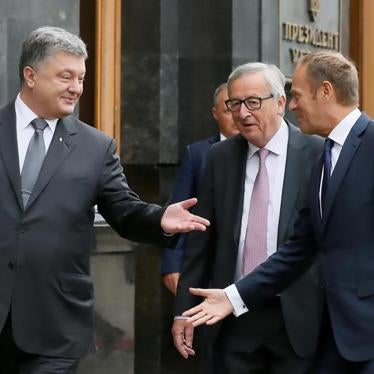A package of draft laws presented by the administration of Ukraine’s president, Petro Poroshenko, has lingered since the summer on the desks of Verkhovna Rada, the Ukrainian parliament.
Part of this package would annul a senseless legal provision adopted in March 2017 that unfairly requires anti-corruption activists to publicly declare their personal income and assets or face prison, just as Ukraine’s state officials must do. Repealing this law is a necessary and urgent step, because the deadline for activists’ self-declarations is April 1.
But another proposal in the package would force all nongovernmental groups (NGOs) to publish on their website invasive and detailed information about their funding and staff, including a list of donors, staff salaries, and amounts paid to external consultants as well as their names. NGOs already file some of this information with state authorities; but demanding all this data be public serves no essential purpose.
The government argues that these proposals will enhance accountability and transparency. But while financial reporting is a legitimate request, ordering sensitive information about NGOs’ donors and personnel be made public threatens both the privacy and security of NGO staff, therefore deterring people from associating with NGOs and obstructing their work.
These proposals are also inconsistent with guidelines of the Council of Europe and the Organization for Security and Co-operation in Europe (OSCE). Last September, Council of Europe experts questioned the public interest of these two draft laws, found the proposed requirements burdensome, and recommended authorities not introduce the reporting requirements.
This week, members of the Venice Commission, the Council of Europe’s top advisory body on constitutional matters, are expected to discuss these very draft laws when they meet in Kyiv. Their conclusion is expected in March 2018.
That’s soon. But it could be too late to prevent the application of the flawed March 2017 law against anti-corruption activists.
The clock is ticking: Ukrainian authorities should expedite the decision to drop the financial reporting requirements before they have grave consequences for anti-corruption campaigners. And if he respects the Venice Commission, Petro Poroshenko should withdraw both draft NGO laws until the Commission concludes its deliberations on them. Ukraine’s international partners should strongly echo this message and show their support for Ukraine’s civil society.










